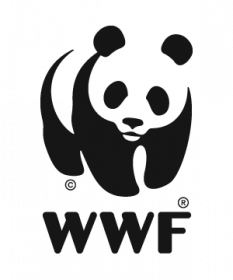To map out where natural forest regeneration has been recently and is happening globally, and work with WWF’s teams across the globe in understanding the mechanisms allowing for such regeneration to occur . Identify and develop practical approaches to mapping natural forest regeneration, train WWF team members in the use of such methods, help WWF management as well as relevant partners to use/incorporate the results obtained in conservation planning and decision making.
Areas of Responsibility:
- Inventory available and upcoming data sources on forest cover, loss, gain and biomass
- Inventory available and upcoming data analysis approaches that can be used/upscaled for global mapping.
- Identify and contact potential partners to have access to such datasets and/or work in collaboration in order to be able to use such data to identify forest regeneration fronts.
- Define/develop and consolidate a methodological approach to be used for forest regeneration mapping.
- Identify those areas where natural regeneration is occurring at significant scales.
- Validate preliminary results with selected interviews with local WWF experts as well as from one or more of the NGO partners in Trillion Trees.
- Build the capacities of WWF GIS and remote sensing technicians to replicate/apply the methods used.
- With the WWF Forest team draw on any existing research to propose how these regeneration fronts could be enabled and supported to reach their potential.
- In collaboration with WWF’s forest practice, discuss with local/global experts the likely drivers enabling such regeneration and potential pathways towards necessary actions for consolidation.
- Assess with local/global experts potential risks to the areas of new secondary forests.
- Combine these stages together to identify the most viable and beneficial ‘fronts’ of natural forest regeneration and estimate each of their potential scale.
Educational Background:
Advanced degree (PhD or Masters + relevant working experience) in Remote Sensing, Forestry, Ecology or any relevant field.
Skills/Experience:
- Requires at least 2 years of experience.
- Relevant experience in the use of remote sensing data for mapping forest cover, deforestation, degradation and area gain, required.
- Capacity for synergistic analyses of remote sensing data (e.g. active and passive sensors)
- Expertise in analysis of time series.
- Experience in coding for required data analysis (e.g. R, python, java, etc.)
- Use of global geoprocessing platforms.
- Relevant experience in geospatial modelling (better if related with future occurrence likelihood).
- Basic relevant knowledge of forest ecology, physiology, forest management, conservation or relevant policy.
- Ability to work in a multidisciplinary/multicultural environment.
- Excellent written and spoken communications skills in English.
- Experience in mapping different forest types (e.g. natural forest discrimination from planted forests), desirable
- International work/research experience desirable
Job Function:
Organization Info
Listing Stats
Post Date:
Aug 20 2018
Active Until:
Sep 21 2018
Hiring Organization:
World Wildlife Fund
industry:
Nonprofit
